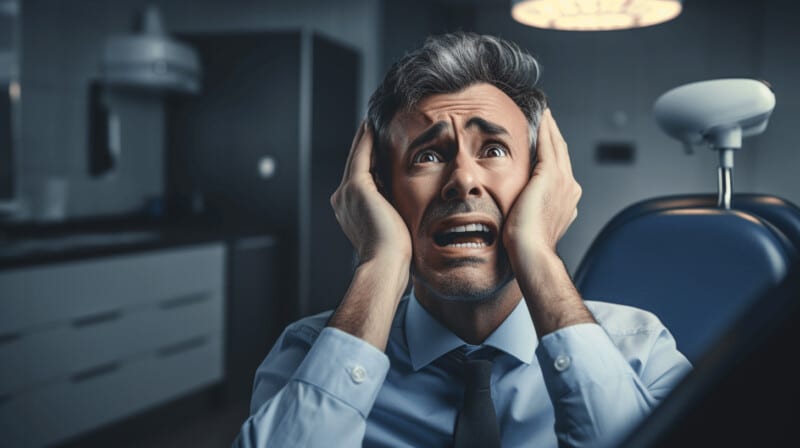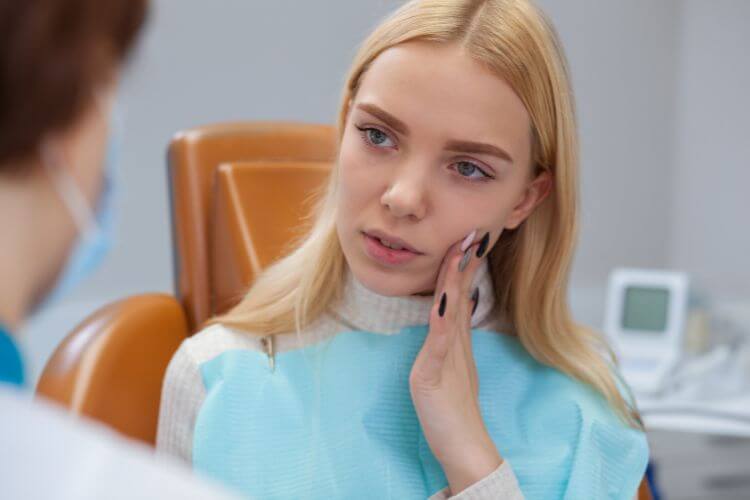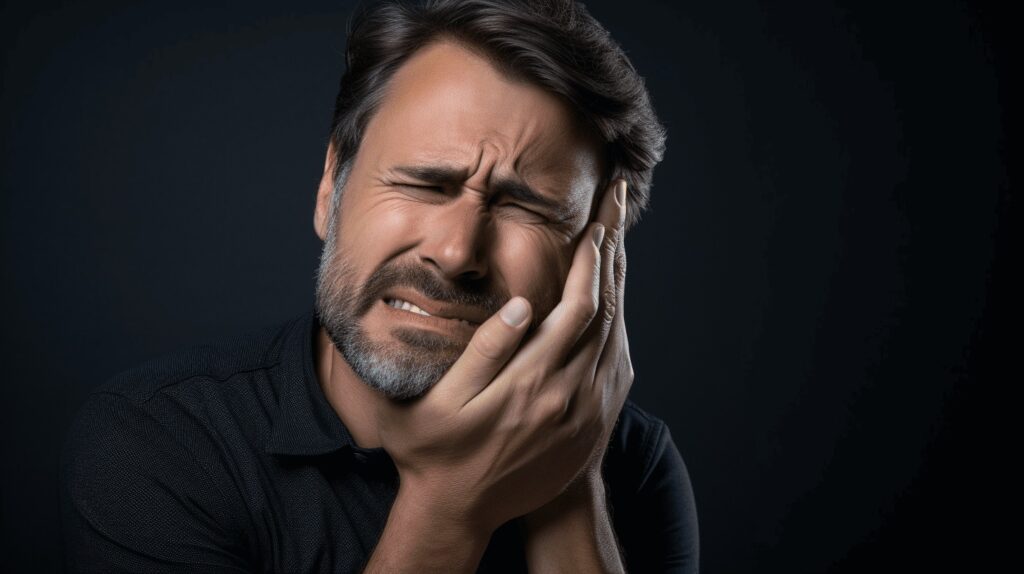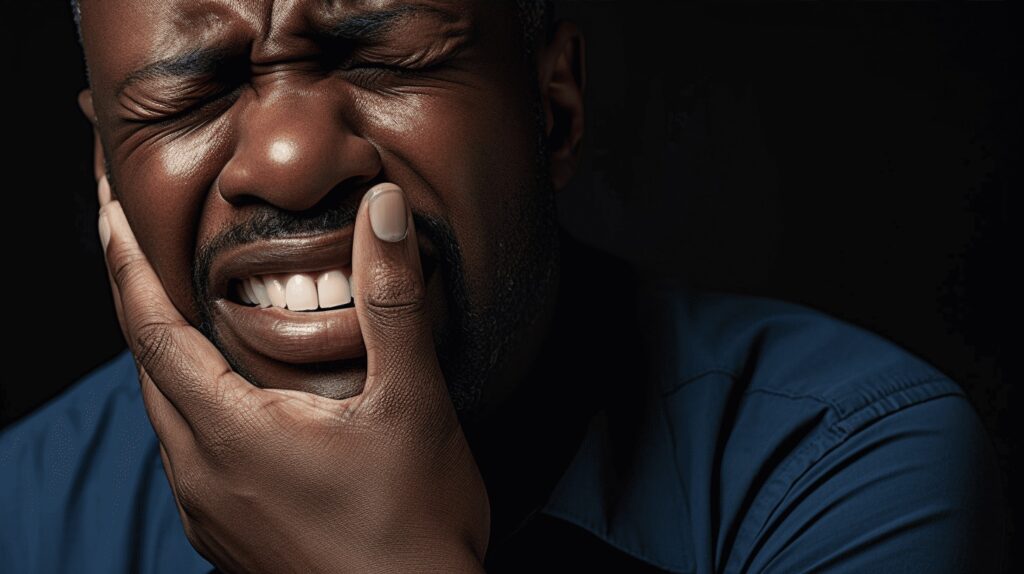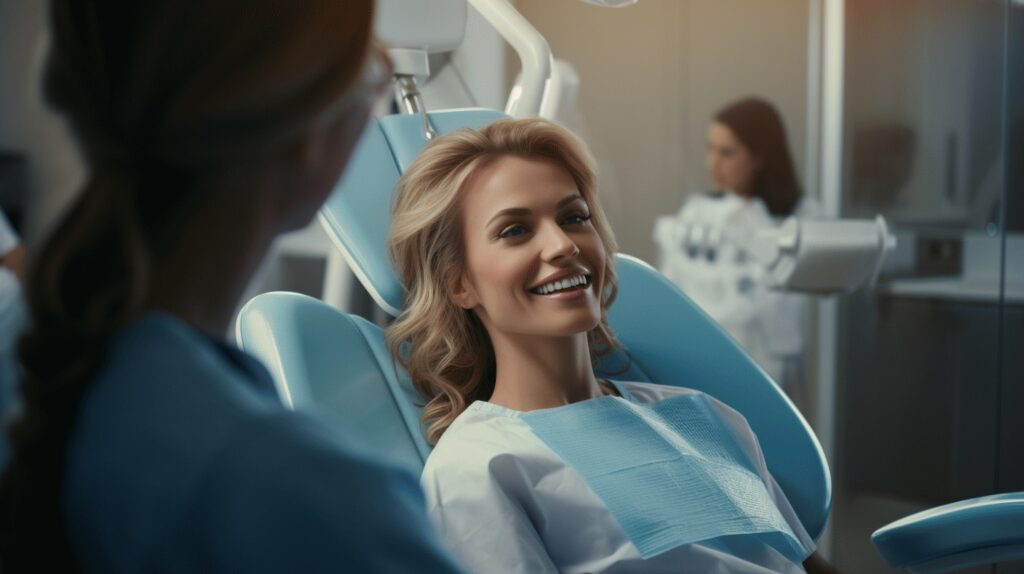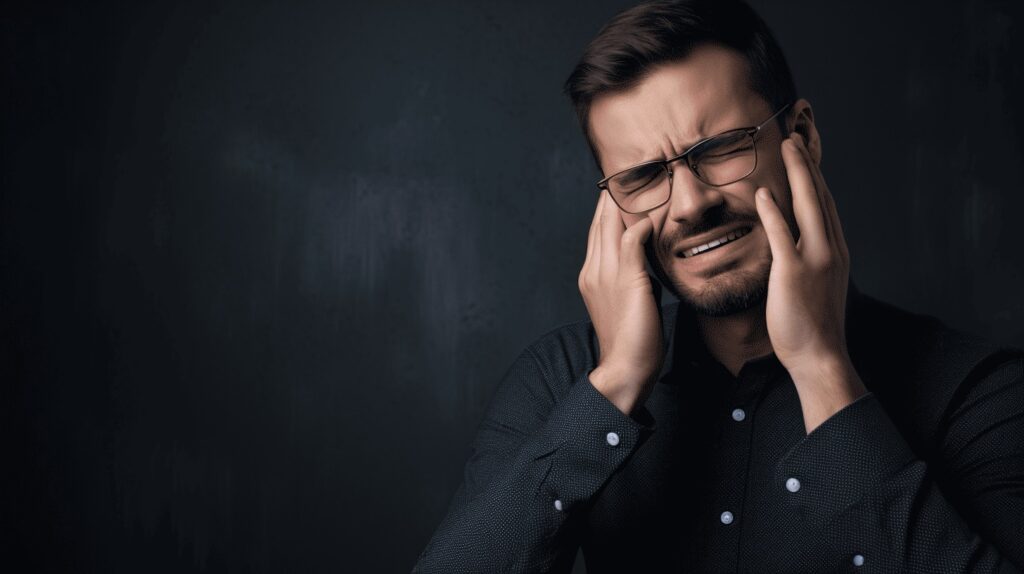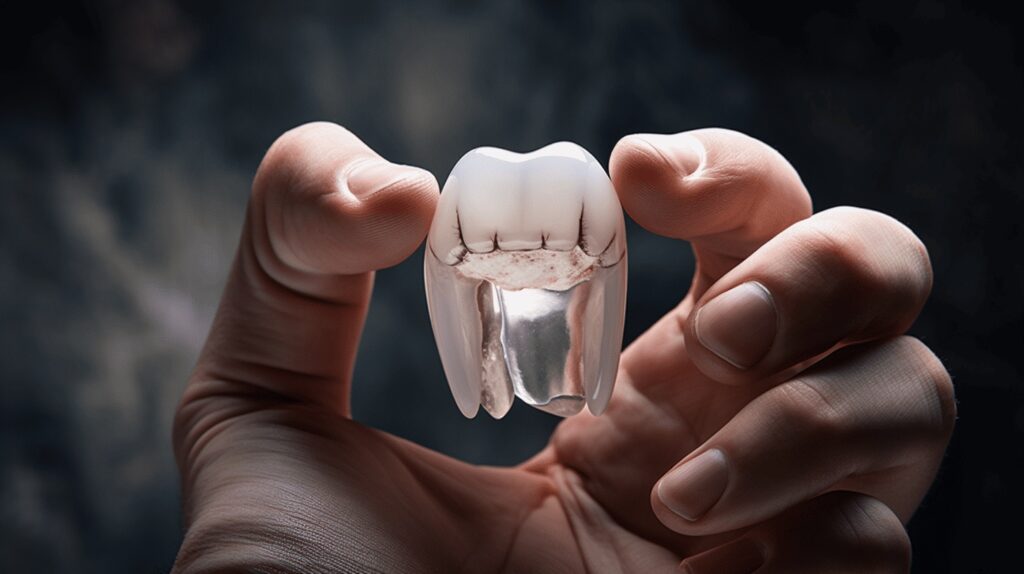Ah, the common phrase we all know too well – “It’s just a toothache, nothing to worry about”. 👀
However, the truth is far from it. Undermining the importance of dental health could have serious repercussions, some of which may be life-altering. Our goal in this article is to shine a light on the importance of dental health and addressing minor tooth issues before they evolve into dental emergencies.
Dental problems, much like any other health issue, can escalate quickly if not attended to promptly. That minor, almost negligible, toothache could evolve into a severe infection or abscess. Stunningly, the global prevalence of dental caries or cavities in permanent teeth hovers at nearly 2.3 billion people, while children with deciduous or baby teeth add another 530 million to the count.
Indeed, tooth problems are not as benign as they may seem at first glance. So, let’s remove the blinders and dive deep into the often ignored world of dental healthcare, its critical importance, and its surprising impacts on the global stage.
Table of Contents
The Ignored Importance of Dental Health Care
One of the most overlooked aspects of our overall health is dental health care. Yet, it plays such a crucial role in maintaining our wellbeing. Ensuring good oral health is as significant as maintaining a balanced diet or exercising regularly. However, it’s not just about having a confident smile; it’s also about wading off potential health problems ranging from tooth aches to severe gum diseases. Let’s delve into the specifics of this topic together.
Global Prevalence of Dental Caries
Ponder this for a moment: dental caries, also known as cavities, affect nearly all adults worldwide. Yes, you read that right, nearly 100% of adults. Such a statistic is sobering when you consider that cavities are largely preventable health issues. Despite advancements in dental health care, the global prevalence of dental caries remains concerning. Celery sticks, anyone? 🥦
Impact of Untreated Dental Caries and Severe Gum Disease
Our oral health is unquestionably influential, with effects that can ripple across our bodies. For one, untreated dental caries aren’t just painful, but they can also have serious ramifications. Did you know that one in four adults aged 20-44 has untreated dental caries? Even worse, about 9% of adults suffer from extreme gum disease, which can lead to loss of teeth, difficulty in eating, and even heart complications!
Pediatric Cavities: An Early Concern
Now, take a step back to consider the pediatric population. For children, tooth decay isn’t just about shedding off their primary teeth. It can also entail enduring pain, eating difficulties, and in worst-case scenarios, severe infections. Let’s not forget to mention that nearly 80% of Americans experience at least one cavity by age 17! Such a statistic is a stark reminder for parents to take early steps in ensuring their children’s good oral hygiene. And no, this doesn’t just mean avoiding candy. 🍬
Let’s face the reality: with 65 million American adults having some form of periodontal disease, it’s high time we put dental health care on the main stage of the wellness arena.
While we’ve shed some light on the global state of dental health in this piece, remember that taking action begins with us individually. So before wrapping up, let’s remind ourselves again: oral health is not negotiable. Whether it’s personal upkeep or policy changes, it’s as simple as this: our mouths matter. Let this be a call to action for all of us to prioritize this less-spoken-about yet crucial aspect of our wellbeing.
Dental Emergencies and Their Economic Impact
We often underestimate the role oral health plays in our overall well-being, to the point that we treat dental emergencies as afterthoughts—putting them on the back burner of our priorities. However, the reality is far from what we perceive. Dental emergencies not only impact our personal health and wellbeing but also have significant economic implications. Can you believe that lost school and work hours due to unplanned dental care contribute to a significant economic toll? Let’s dive deeper into this subject to understand the extent of its impact.
Loss in School Hours due to Unplanned Dental Care
Imagine the immense potential that each school hour holds for our children. Each minute brims with opportunities to learn, explore, and grow. Now, here’s the shocker – every year, an estimated 34 million school hours are lost due to unplanned dental care. ✍️ To put it in perspective:
- If those hours were days, that would be over 93,150 days.
- To visualize it as years, it’s gorgeous 255 years of potential learning lost!
This is not just a loss of education for our future generation, but a missed chance to build a more enlightened society.
Loss in Work Hours and US Productivity
Further, the impact isn’t limited to the domain of education alone. The cost of neglected oral health also percolates into our work lives. Surprisingly, data reveals a loss of $45 billion in US productivity each year due to unplanned dental care. Forget those absences due to colds or flu; dental emergencies are silently gnawing at our economy.
Consider this:
- If each work hour earns an average of $28, we’re losing out on 1.6 billion work hours!
- That’s equivalent to 66 million full work days a year.
Consequently, the profits that could have funded business growth or national development are being drained unceremoniously by preventable dental issues.
Rising Number of Dental-Related Emergency Department Visits
The problem expands further, as evidenced by the substantial swell in the number of dental-related emergency department visits. Shockingly, approximately 2 million such visits were recorded in 2018 alone. This rise in emergency visits not only signifies poor oral health care but also piles pressure upon an already burdened healthcare system.
Emergency room visits require immediate attention, which means more resources. These would be redirected from potential life-threatening health conditions, making both economic and health consequences severe.
We encourage you to read our guide on Dental-Related Emergency Department Visits and understand when to seek immediate treatment. This knowledge could make all the difference in optimizing healthcare resources, protecting our economy, and ensuring your oral health.👌
Armed with the right information, we can combat dental emergencies efficiently, ensuring personal well-being and contributing to our country’s economic health. Let’s make dental care a priority rather than an afterthought—a small step towards greater productivity and better health.
Dental Care During the COVID-19 Pandemic
The past year has presented an irrefutable reminder of the interconnectedness of our health. We’ve realized that, no matter where you live or who you are, the health of one can significantly impact the health of all. Consequently, paying additional attention to aspects of our health that we once took for granted, such as dental care, has become a central part of our lives. This conversation is now more important than ever as the COVID-19 pandemic has forced an astounding number of dental offices to close their doors.
“198,000 dental offices and active dentists shut down during the COVID-19 pandemic.” Just imagine that! Such a vast number of closures have inevitably resulted in many people missing out on crucial dental care. Suddenly, scaling and polishing aren’t the only concerns; maintaining basic oral hygiene has taken the limelight. Dentistry, it seems, is not just an essential service but a crucial necessity, especially when we consider the broader health issues that can arise from neglecting oral care.
But while the world starts to make a stride towards reopening these critical services, it’s important that we do not treat dental care lightly. Let’s remember the pandemic is not yet over. We need to continue the extra steps taken to preserve oral health at home and ensure that when we do visit our dentists, it’s done safely.
Just as we’ve innovatively adapted to work-from-home setups, home schooling, and Zoom parties, we’ve also learned new ways of looking after our smiles during this challenging time. Let’s take a look at some:
- Using a good quality toothbrush: Now more than ever, investing in a nice toothbrush—and replacing it regularly—is essential.
- Not forgetting to floss: While it’s always been an important part of oral health, flossing can help prevent gum diseases that might lead to other more serious health problems.
- Eating a balanced diet: Essential nutrients from healthy food will naturally fight against germs and bacteria.
- Avoiding tobacco and excessive alcohol: Both can weaken your immune system and can make it harder for your body to heal.
While these points will help us maintain a basic degree of dental care, no list is complete without visiting a dentist when you’re able. However, remember to respect the safety measures implemented in dental practices to keep both you and your dentist safe.
“A healthy mouth is the gateway to a healthy body.”
In the COVID-19 era, this adage could not be more poignant. Dental care isn’t just about preserving our smiles—it’s about a holistic approach to health. We may have less control these days, but we can control how thorough we are with taking care of ourselves, and our smiles should be no exception.
Widespread Incidence of Dental Emergencies in the US
Emergencies rarely knock on the door before making an entrance. All too often, they just barge in uninvited, catching us completely off guard. And when it comes to emergencies of the dental kind, the discomfort and pain they cause can unhinge even the bravest among us. 😰
With statistics revealing that about 12% of American adults have grappled with a dental emergency, we can safely say that this is quite a widespread issue. Whichever way you slice it, that’s a significant chunk of the adult population in the US! 🇺🇸
Atraumatic Dental Pain
One particular type of emergency that has been making a regular appearance is atraumatic dental pain. It is estimated to account for 1.8% of all emergency department visits. Imagine that 💁 ! Let’s break it down: atraumatic dental pain is pain in the teeth or surrounding areas where injury or trauma isn’t the cause.
This condition might seem less severe because, you know, no blood or broken teeth, right? But the truth is, it can cause severe discomfort and render a person unable to focus on their daily tasks. It’s definitely something you wouldn’t want to ignore! ✔️
Nontraumatic Dental Problems
But that’s not all! Nontraumatic dental emergencies are another major contributor to hospital admissions. An average of 2 million annual emergency department visits in the US are attributed to nontraumatic dental problems. Unbelievable, isn’t it? And just what are these issues, you ask? Think extreme tooth decay, abscesses, dislodged fillings, or inflamed gums – all painful and all not caused by sudden trauma.
While these problems warrant immediate attention, knowing how to handle dental emergencies can be a game-changer. It can make the difference between saving a tooth and losing it. And the ability to alleviate pain before getting to a dentist can also provide much-needed relief. 🏥
Let’s face it – dental emergencies aren’t going anywhere anytime soon. But with the proper knowledge, we can deal with them more effectively and ensure they don’t take too much of a toll on our lives. After all, forewarned is forearmed, right?✔️
Effectiveness of the Dental Therapy Model
When it comes to the world of dental health, one model stands significantly above the rest. You guessed it: it’s the tried-and-true dental therapy model. Over time, it has proven to be safe and effective, and it’s having quite the impact on dental health standards worldwide.
Here’s a fun fact to kick things off: did you know that over 1,000 studies and surveys have shown that the dental therapy model does exactly what it promises, and does it well? By this point, you might be wondering what exactly makes this model so effective. Well, strap in amigos, because you’re about to find out!
The Unrivaled Safety of the Dental Therapy Model 🦷
Safety is paramount in dental healthcare, and the dental therapy model doesn’t disappoint. It guarantees safety by ensuring that appropriate and extensive training is provided to all dental therapists, instilling in them the necessary skills to carry out their duties effectively, and to manage any potential risks.
With diligent adherence to safety protocols, the risk of mishaps significantly decreases.
Spectacularly Effective 🎯
The dental therapy model also shines bright when it comes to effectiveness! Dental therapy not only keeps those pearly whites in good shape, but also ensures patients understand the importance of proper dental hygiene.
A key aspect contributing to this effectiveness includes:
- Preventive care and education that decreases the possibility of severe oral health issues.
- Prompt diagnoses and appropriate treatment plans that ensure effective handling of dental issues.
- Excellent patient satisfaction, as evidenced by the many positive feedback scores in surveys.
Essentially, the dental therapy model is a game changer. It’s proven to be both safe and effective, and it’s revolutionizing the way we approach dental healthcare. But don’t just take our word for it — remember those 1,000 studies and surveys we mentioned earlier?
Given this evidence, it’s apparent that the dental therapy model is more than just hype. It’s a reliable, trustworthy approach to ensuring optimal oral health. Availing of dental therapy services can truly make a difference in one’s dental health journey, providing peace of mind and effective treatment strategies.
Key takeaway? The dental therapy model is the future of dental healthcare, and it’s here to stay. Time to flash that winning smile! 😁
Conclusion
Navigating the complexities of dental emergencies can be quite daunting due to various factors, such as their sudden occurrence, severity of pain, and potential financial burdens. The ideal approach, of course, involves incorporating a proactive attitude towards your oral care regimen to promoting sustainability in oral health, hence mitigating the risk of dental emergencies.
At Wilshire Smile Studio, we firmly believe in the power of preventive dental care, and we are well-equipped to handle any dental emergencies that might arise nonetheless. Having established a reputation of exceptional dental care in a comfortable and welcoming environment, we owe our success to the latest technology in dentistry and a team of experienced professionals.
Why put off to tomorrow what you can achieve today? Whether you seek routine preventative care or find yourself facing an unexpected dental emergency, we at Wilshire Smile Studio are poised and ready to restore your beautiful smile, and thus, your peace of mind. Book your appointment now, and let us help you maintain a lifetime of excellent oral health.
Book your free consultation with us online or call (323) DENTIST (323-336-8478) today.
Frequently Asked Questions
1. What should I do in a dental emergency?
In a dental emergency, it’s important to remain calm and assess the situation. If you have a toothache, you can rinse your mouth with warm water and floss to remove any food debris. If you have a knocked-out tooth, try gently placing it back in the socket or store it in milk or saliva until you can see a dentist.
2. When should I seek immediate dental care?
You should seek immediate dental care if you experience severe pain, bleeding that won’t stop, a knocked-out tooth, a loose tooth, a broken jaw, or any other dental emergency that requires immediate attention. Contact your dentist or visit the nearest emergency dental clinic.
3. Can I wait to see a dentist if I have a minor dental issue?
While some minor dental issues may not require immediate attention, it’s advisable not to delay seeking dental care. Ignoring minor issues can lead to more significant problems in the future. It’s best to schedule an appointment with your dentist to evaluate and address the issue.
4. What should I do if I cannot reach my regular dentist during a dental emergency?
If you cannot reach your regular dentist during a dental emergency, you should search for an emergency dentist in your area. Many dental clinics have emergency services and accept walk-in appointments. It’s important not to ignore a dental emergency and seek care promptly.
5. How can I prevent dental emergencies?
To prevent dental emergencies, it’s essential to maintain good oral hygiene by brushing twice a day, flossing daily, and visiting your dentist for regular check-ups. Avoid chewing hard objects, such as ice or popcorn kernels, and wear a mouthguard during sports or activities that may pose a risk of dental injury.


